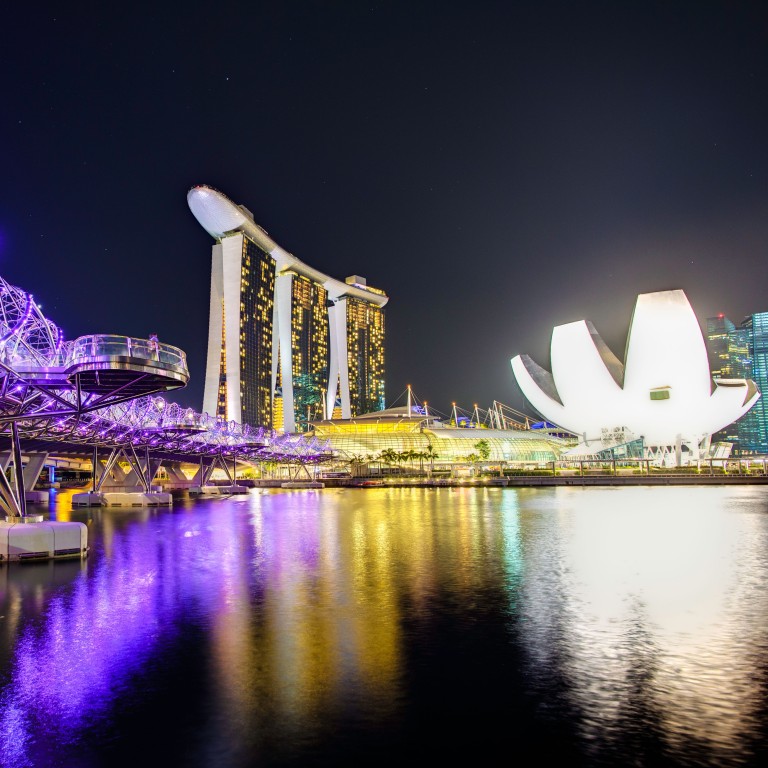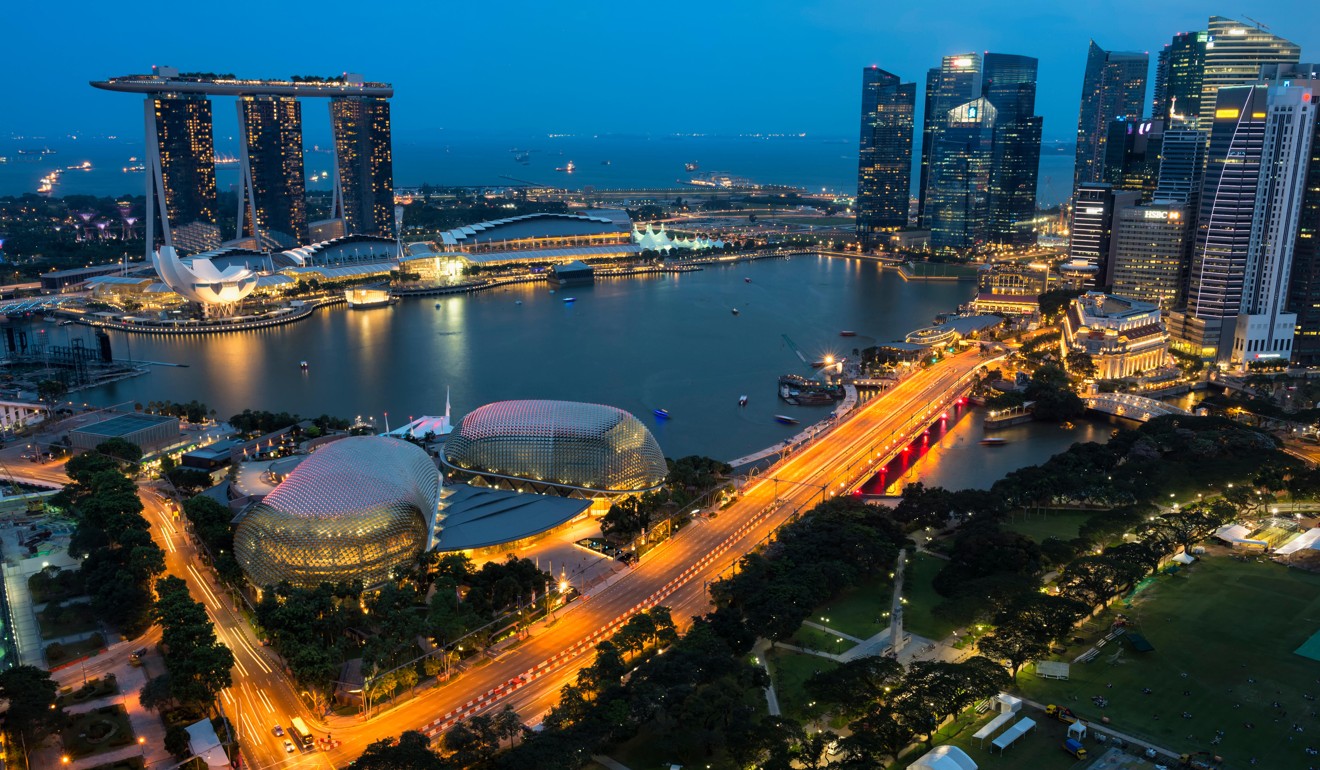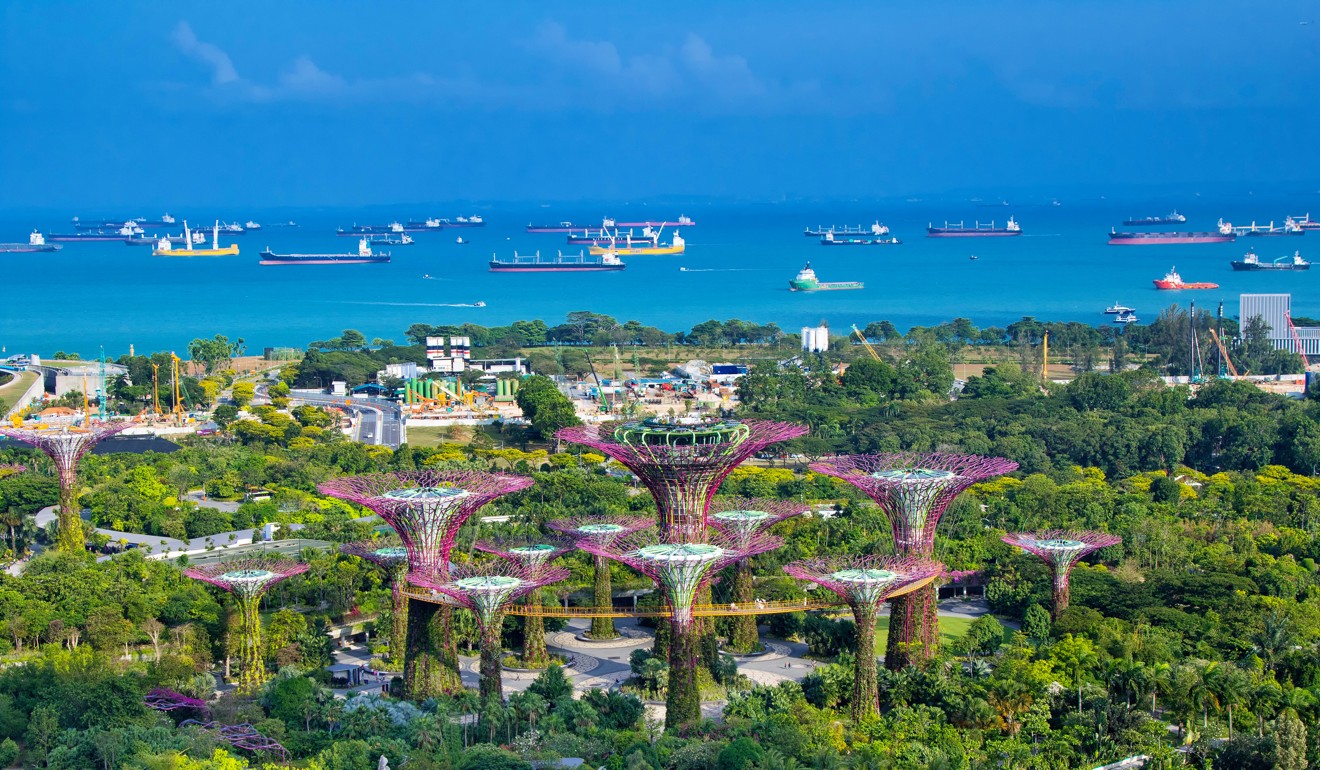
‘A hip, sexy place of wealth’: Singapore’s appeal as film and TV location growing in wake of Crazy Rich Asians
- After the success of Crazy Rich Asians, production companies have been looking more closely at shooting films and TV series in the Lion City and Southeast Asia
- With Hong Kong and Tokyo overexposed, and the Asian HQs of Netflix, HBO and Lucasfilm all in Singapore, ‘the needle has moved’, a brand consultant says
Following the box-office success of the 2018 romantic comedy Crazy Rich Asians, and with the third season of hit HBO sci-fi series Westworld pending – both shot partially in Singapore – is the Lion City becoming the new Asian darling of TV and Hollywood film producers?
The cityscapes of locations such as such as Tokyo and Hong Kong have been filmed too often, leaving American film and television productions seeking new backdrops, says Freddie Yeo, chief operating officer of Infinite Studios. The company is the production arm responsible for securing Singapore as the set location for both Crazy Rich Asians and the upcoming Westworld season.
Yeo points out that although only three major films and one television series have been shot in the Lion City in the past 10 years, it is a marked improvement on the previous decade considering the scale and global reach of the productions.
“If we were to compare the volume of productions between the periods of 2000 to 2010 and from 2010 to the current time, yes, the latter period has seen increasing activity, with three major Hollywood films entirely or partially shot in Singapore – namely Crazy Rich Asians, Independence Day: Resurgence and Hitman Agent: 47.”

“The box-office success of Crazy Rich Asians definitely opened the eyes of the world to Singapore, especially from a visual and cultural perspective,” he says. “Filmmakers are always looking for something fresh, new and enticing, and Singapore has not been featured much globally compared with Asian cities like Tokyo or Hong Kong.”

“People are curious about Singapore and want to film here because of its stunning blend of modern architecture and nature parks, the juxtaposition of its preserved … colonial history and the modernism of present-day architecture, the glorious food haven that Singapore is known for, and of course the seamless diversity that makes up Singapore.”
Speaking to Singapore’s Channel NewsAsia in July, Westworld co-creator Lisa Joy said the choice of Singapore as a location came down to the city state’s skyline, which is “spectacular, unique and with a beautiful curvature”.

“We needed to create a world of fiction that was immersive, new, beautiful, gripping and fascinating. Looking outside my window at Singapore right now, where else would we go after seeing this?” said Joy, who created Westworld along with Jonathan Nolan, her husband and a long-time producer-screenwriter.
Koh Buck Song, a country brand consultant, author and columnist, says thanks to Crazy Rich Asians’ portrayal of the country as a wealthy destination, other producers have taken an interest in Singapore.
“With Singapore portrayed as a hip, sexy place of wealth, sophistication and futuristic infrastructure, the needle has already moved, and will do so even more, for positive brand recall,” Koh says.

The Singaporean government has also been dangling carrots in front of foreign producers in hopes of wooing them, just as attractive tax rates and ease of doing business have paved the way for foreign investment in the country.
“Many producers are attracted to Singapore thanks to direct financial incentives from the Singapore Film Commission, Singapore Tourism Board and potentially other government agencies,” says David Lee, film programmer and vice-chairman of the Singapore Film Society, and there are many benefits.
“The productions provide employment as well as opportunities for our local production talents and crew to work alongside the Hollywood professionals, and they will be able to see … first-hand how things are being run on the set of a Hollywood production,” Lee says.

Infinite Studios’ Yeo notes that the Production Assistance (P-Assist) Scheme, introduced in 2011 by regulatory body the Info-communications Media Development Authority of Singapore (IMDA), is one such incentive programme in place that “creates jobs, exposure and skills transference for the local industry practitioners, especially those working on larger scale international projects”.
The economic rise of Southeast Asia in general has given film producers and investors – both local and from overseas – a new source of inspiration, says Rance Pow, founder and president of leading Asian film research and market intelligence group Artisan Gateway. “Southeast Asia has been a region of growing industry interest for the past several years,” he adds.
Pow describes Singapore, along with neighbouring countries, as “markets with large populations that are relatively underscreened by more mature market standards” – meaning they have a low number of cinemas relative to their populations.
He argues that the growth and stability of Singapore will provide an “opportunity for the local creative industry as the film going experience grows in popularity”.

“This notion of Singapore being conservative is a dated perspective,” Yong says. “We are now living in [Canadian philosopher] Marshall McLuhan’s ‘global village’. The internet can give anyone an instant update of even the remotest of regions with pictures, text and video.
“Popular culture is decreasingly a Hollywood hegemony,” he adds. “It now has a global tone to it. K-pop is performed at the American Music Awards, and Slumdog Millionaire, a story set in Mumbai, won an Oscar for best picture. Crazy Rich Asians and Westworld are perfect in reflecting the transborder nature of our world today.”
The box-office success of Crazy Rich Asians definitely opened the eyes of the world to Singapore, especially from a visual and cultural perspective
Yong adds that Singapore benefits greatly from a geographical and economic standpoint. “Singapore sits in a prime position, as it is a modern, cosmopolitan city that maintains some of its traditional or ‘conservative’ Asian roots. It isn’t so much about repositioning as it is about showcasing Singapore’s unique identity, which is now becoming more well-known in the film industry.”
In time, Hollywood and television producers such as HBO and Netflix may create a narrative about Singapore that is more realistic, says British writer and Singapore resident Brendan Buxton.
“There are countless stories from Singapore and Southeast Asia waiting to be told,” Buxton says.

“Crazy Rich Asians is a ‘signal moment’ for Chinese-Americans, particularly, a success achieved through the talent of actors from the wider Chinese diaspora. Hopefully, with the interest this film has created, and the obvious artistic abilities on show, major studios will see this and have the guts to use Southeast Asian actors and their native styles of English in Hollywood films – and not just swoon over their beautiful, exotic homelands.”
The stakes for cashing in on Asia’s continued ascent may be too high to ignore.
“Hollywood cannot ignore the Asian box office,” says Marcus Lim, film director and a contributor to Variety magazine. “But what Hollywood is very good at is knowing where to make money,” Lim says.
“Romantic comedies were a failing genre until Crazy Rich Asians became the highest grossing romantic comedy last year. This has opened Hollywood’s eyes to the fact that certain communities are being underserved, and when Asian Americans see a romantic comedy featuring Asian faces, they go and support it.”

